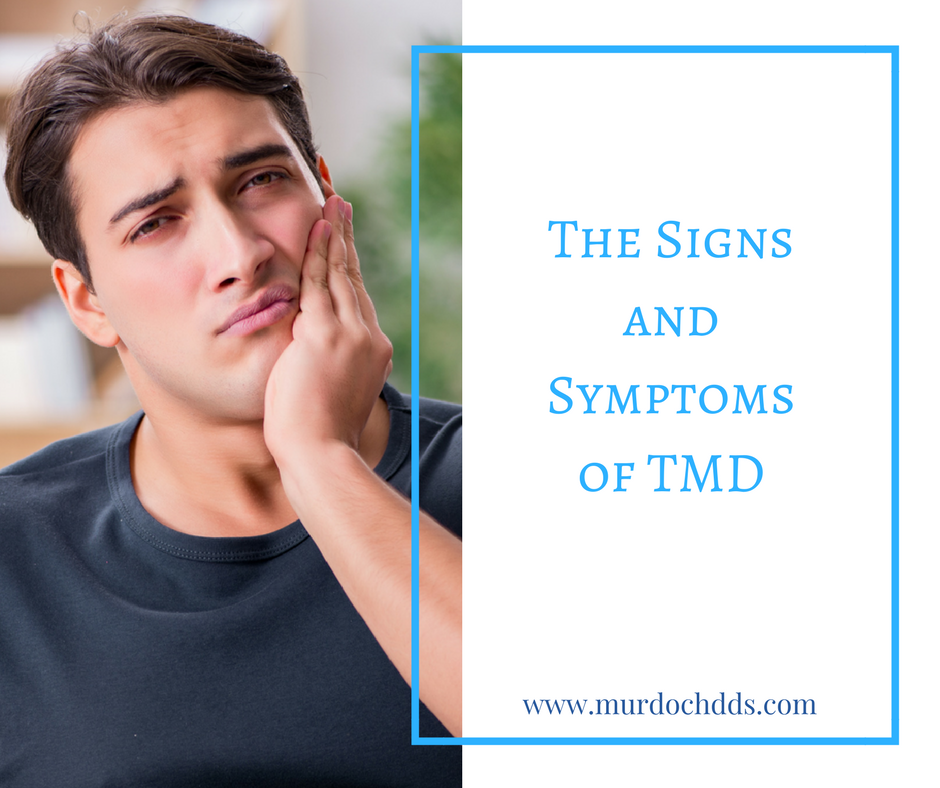The Signs and Symptoms of TMD

The temporomandibular joint (TMJ) is a complex joint that combines both a hinge and sliding motion. The movement in this joint is usually smooth, thanks to cartilage that covers the parts of the bone that interact with each other. There is also a shockabsorbing disk that keeps the bones separated during movement. When the cartilage is damaged (by injury or arthritis), or if the disk is eroded or moved out of proper alignment, it can cause painful TMJ disorders (TMD.)
TMD is no fun, as anyone who has suffered with it can attest. If you are experiencing any of the following symptoms, TMD might be the problem:
- Change of facial expression
- “Tired” feeling in the face
- Pain during chewing
- Jaw pain or stiffness
- Earache
- Pain and/or tenderness around jaw, ears, neck, and cheeks
- Headaches
- Migraines
- Popping sound, grating, or clicking sound in the jaw
- Inability to fully open jaws/locking of the jaw
- Change in bite (how upper and lower teeth meet)
Because the symptoms of TMD concern so many parts of our face, it can be difficult to diagnose. Patients will often consult a physician, a dentist, or an ENT for individual symptoms (tooth pain, for example, or headaches) not realizing that they are caused by TMD.
It also helps to understand the risk factors of TMD. If you’ve had a jaw injury, if you suffer from arthritis (rheumatoid or osteoarthritis), if you chronically grind or clench your teeth, or if you have an illness that affects connective tissue, you are more at risk to develop TMD. If you notice that you have several of the symptoms above, especially if you have any of the risk factors, it might be a good idea to consult with your dentist about the possibility of TMD.
A dentist is often the best bet for diagnosis, and they can analyze your bite and look for signs of TMD in the movement of your jaw. The symptoms for TMD can be similar to those of gout, arthritis, or even lupus, so your dentist might recommend further testing to rule these out. If it is determined that you have TMD,your dentist will be able to discuss treatment options with you.
To learn more, visit https://murdochdds.com/ Dr. Richard Murdoch serves patients in Denver and Centennial, Colorado, and specializes in laser dentistry, implants, and TMJ / TMD.
August 16, 2017
